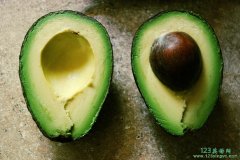Things that move obey certain laws. Three important
编辑:高中作文网 阅读 次Things that move obey certain laws. Three important laws of motion were established by Isaac Newton (1642~1727).
NEWTON Ⅰ: INERTIA
Newton’s first law of motion seems simple: Objects at rest tend to remain at rest, ___33___ moving ones continue to move at a uniform speed in a straight line---____34____ acted upon by an outside force. This resistance to change is called inertia, and it explains a lot of everyday experiences no matter where you happen to live.
One is that when the car or airplane you’re in begins to move, your body is pushed back___ 35_____ the seat. That is, it tends to remain at rest _36____ _____ _______ the forward-moving force of the vehicle transferred to you through the seat. ____37___ aspect of this law shows that the normal courses for freely moving objects is a straight line. That explains why, when you whirl something around your head---such as a ball on a string---and then let it go, the ball flies straight. It ___38___ keeps circling your head nor does it move off in a sweeping curve.
NEWTON Ⅱ: F=MA
Newton’s second law relates the amount of force needed to move an object to the object’s mass and its acceleration.
Push a child in a swing, or ride a planet around the sun, and you’re using Newton’s second law of motion, which states that _____39_______ you want to change the speed or direction of something, you have to apply an appropriate force. The bigger the mass or the larger the intended acceleration, the greater the necessary force. This law’s formula allows engineers to calculate what’s required to launch a jet fighter from an aircraft carrier, or how strong a seat belt__ 40_____ be to restrain, say, a 160-pound person when his car stops suddenly while travelling at 60 mph.
33. while 34. unless 35. Against 36. Despite
37. Another 38. Neither 39. Whenever 40 must
A. way B. label C. stereotypes D. situated AB. foreign AC. studies
AD. references BC. address BD. politely CD. insulting ABC. respectively



